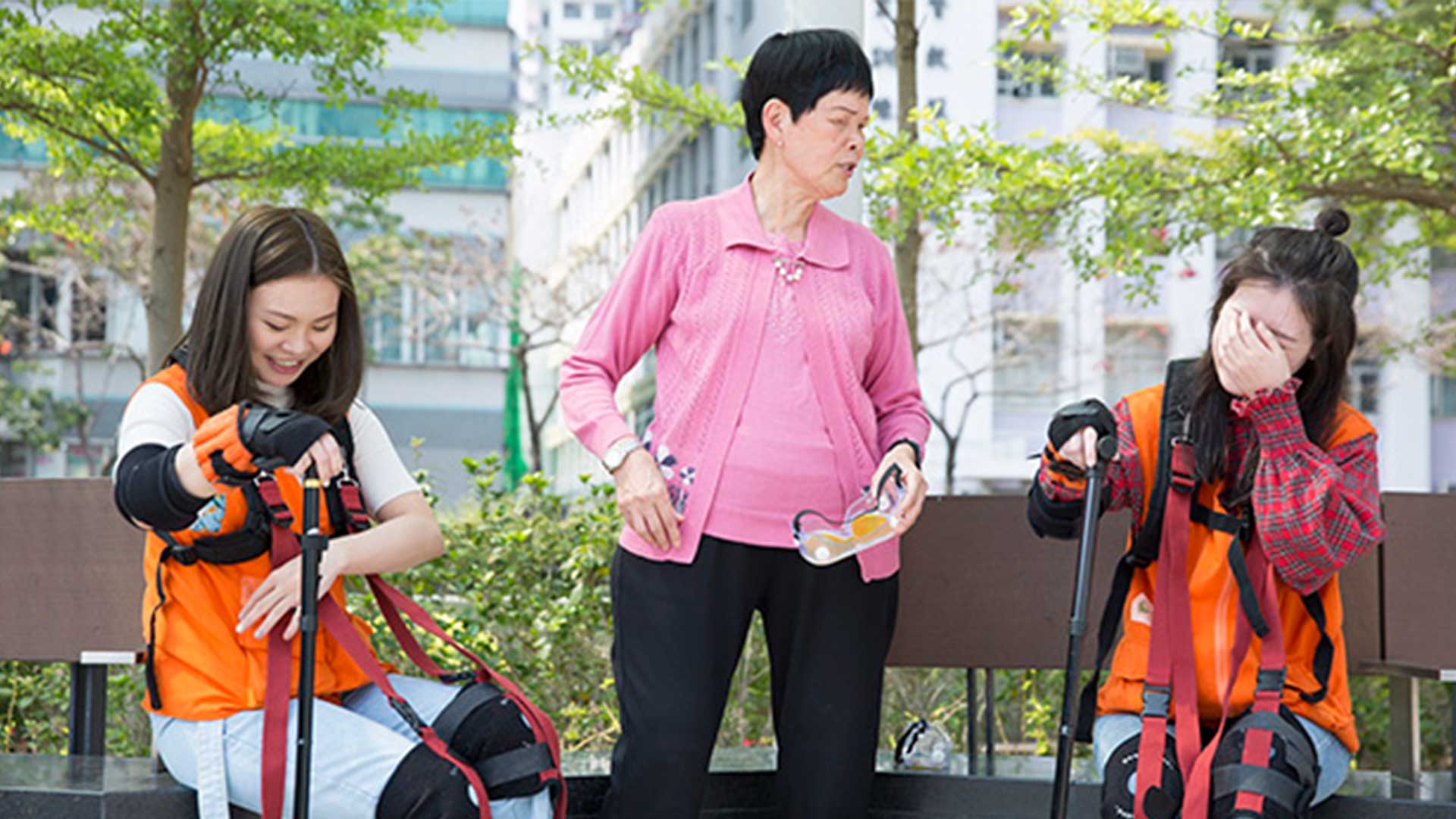“My grandma was the one who raised me, with all the love in her heart. But as age claimed her vigour, the world began leaving her behind. So I wanted to nurture empathy for our elderly through the simulation suit,” explains Nivey, co-founder of Eldpathy.
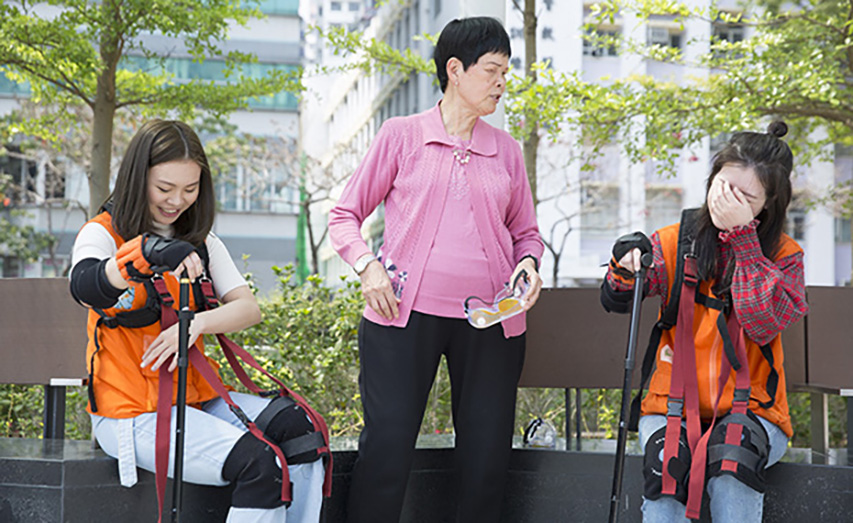
Everyone speaks of opportunities and inclusion for the elderly, but seldom do we ask what they truly need. What daily challenges do they face? These questions lay close to the hearts of Nivey and Herman, who were both raised by elders. After graduating from university, they founded the social enterprise Eldpathy and brought in simulation suits to give people a taste of physical infirmity.
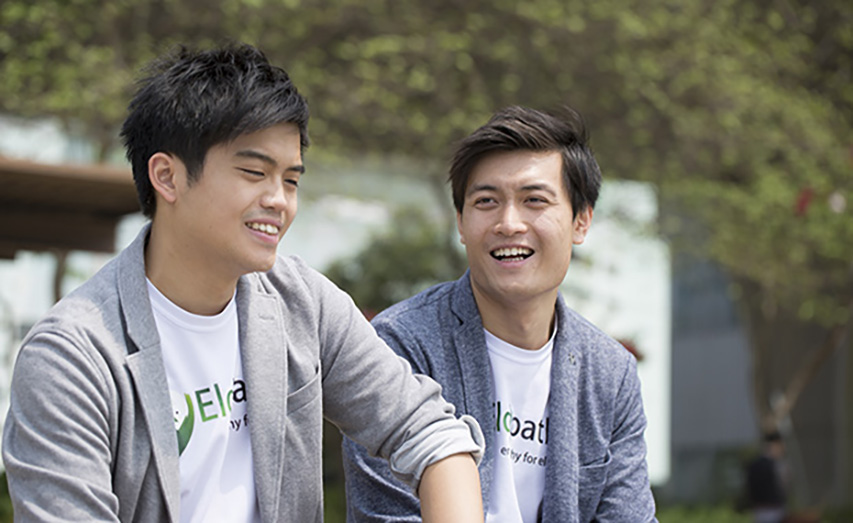
Herman (L) and Nivey (R), co-founders of Eldpathy
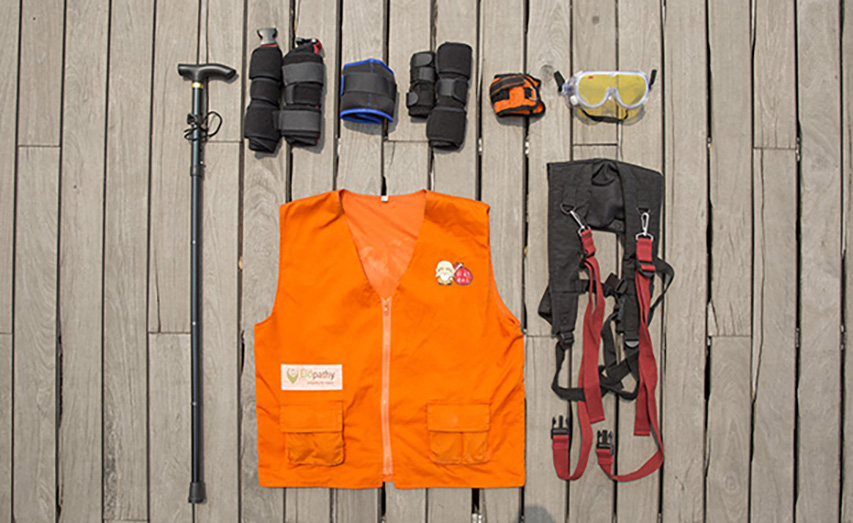
Don the simulation suit to experience the physical challenges of an 80-year-old person.
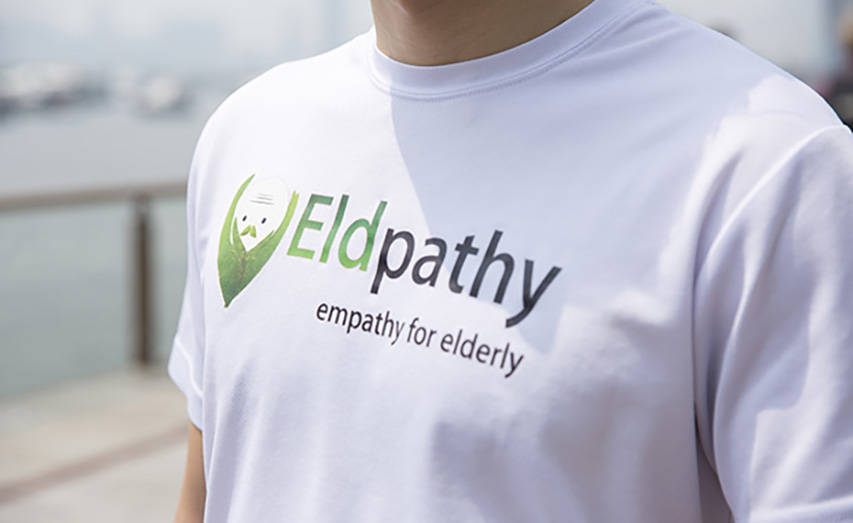
Eldpathy promotes empathy for the elderly.
Don’t just talk about it – experience it
Declining mobility can make it hard for the elderly to do simple things like climb the stairs or even get in a car, but their physical limitations are poorly understood and too often ignored. The answer? Walking a mile in their shoes. Following exhaustive research, Herman and Nivey finally discovered the old age simulation suits produced by Taiwan’s Hondao Senior Citizen's Welfare Foundation. Designed to provide a full-body experience, the suits include restraints to simulate a slouch, free weights on one leg to offset balance, and presbyopia goggles to simulate weak eyesight. It’s enough to hamper even energetic youths. Herman and Nivey purchased 20 suits for their workshops, which are run by around 20 elderly coaches recruited from elderly centres. “Take it slow, don’t rush. I’ll help you,” said 78-year-old coach Jing as she taught two participants to walk in their suits.
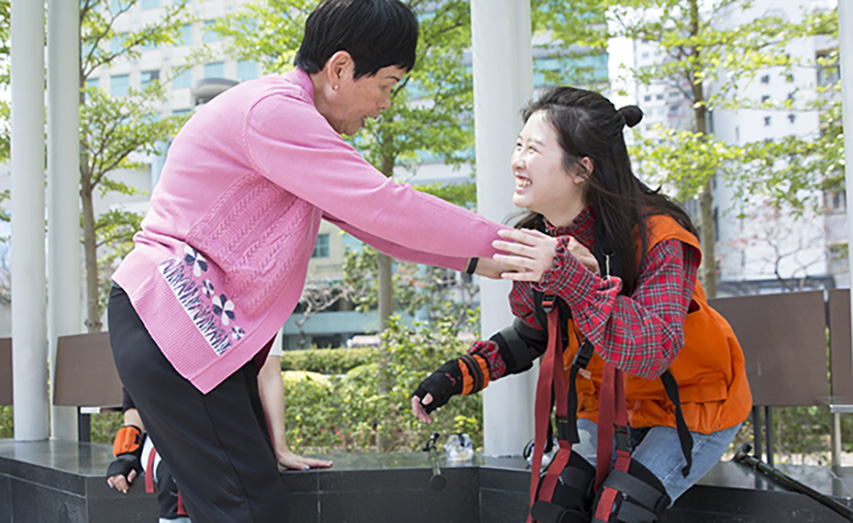
The simulated slouch made it hard to get up. Jing instructs the participant to sit back down and use the cane, to avoid hurting her back.

It’s a struggle to see through the simulation goggles, which make everything blurry.
“She hugged me and cried once she took off the suit”
One participant couldn’t even get up from her seat due to the suit’s restraints. “Can we loosen it a bit, to account for my height?” she asked nervously. The other participant saw only about ten centimetres in front of her with the simulation goggles on, forcing her to squint. Although both were in their twenties, the suits kept them moving slower than Jing. They could barely wait to get free at the end of their 15-minute session, and found themselves having to sit down and pull out their water bottles.
“One of the girls hugged me and cried after taking off her suit, saying she finally understood,” shares Jing. “It moved me almost to tears.” Many questioned the authenticity of these simulations because some elderly people, like Jing, are able to stand straight. “What the naysayers don’t know is that Jing suffers chronic knee pain and can’t handle stairs,” explains Herman. “This workshop isn’t just about opening our eyes to physical infirmity. It’s about cultivating empathy, which cultivates communication. And it’s about getting people thinking about how we can create more elderly-friendly communities.”
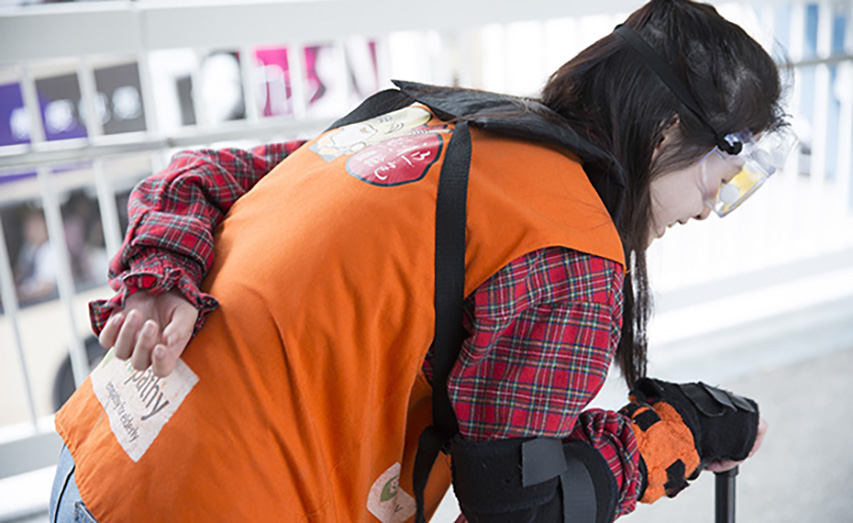
Every movement takes time to get used to. As the aches set in, you can’t help rubbing your back.
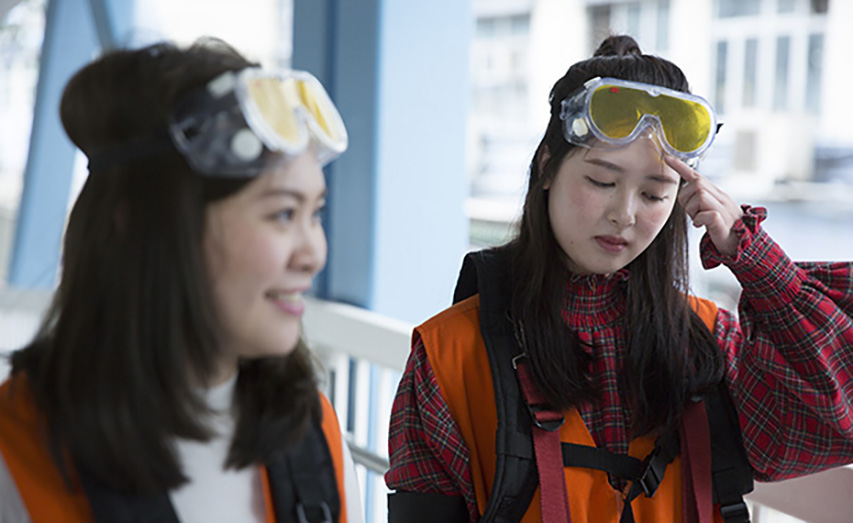
They had to remove their goggles and loosen their restraints for a break now and then. That’s how hard it was!
Not a boss, but a friend
“I’ve been working for Eldpathy for over three years now. The boss treats us with respect and socialises with us outside of work. We visited him over Chinese New Year, and he served us New Year cake. I wouldn’t work for him if he weren’t so kind – we’re too old for anything that doesn’t spark joy,” Jing shares with a grin. Still in his twenties, Herman isn’t used to being called Boss. Maybe he thinks he’s too young to be one. Maybe he simply sees the elders as family, not employees. He loves them, respects them and strives to protect them – and it shows.
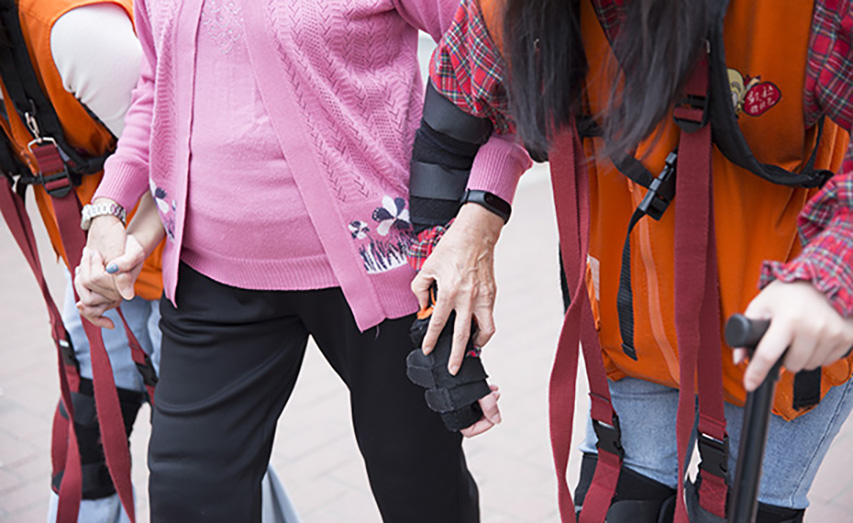
Jing held the participants’ hands and encouraged them when they faltered. It was a moment of connection.
When Eldpathy entered its third year, Herman and Nivey felt they had plateaued. The suits were a success and the company was thriving, but they weren’t comfortable with expanding the business and hiring permanent staff – until they joined DBS Social Enterprise Advancement Grant Programme. Not only were they able to purchase more simulation suits, they also recruited a full-time social worker to design a new workshop on elderly poverty, diversifying the company’s offerings. “DBS even assigned experts from their human resources department to coach us on pitching our plans to other corporations, expanding our client list and achieving sustainable development.”
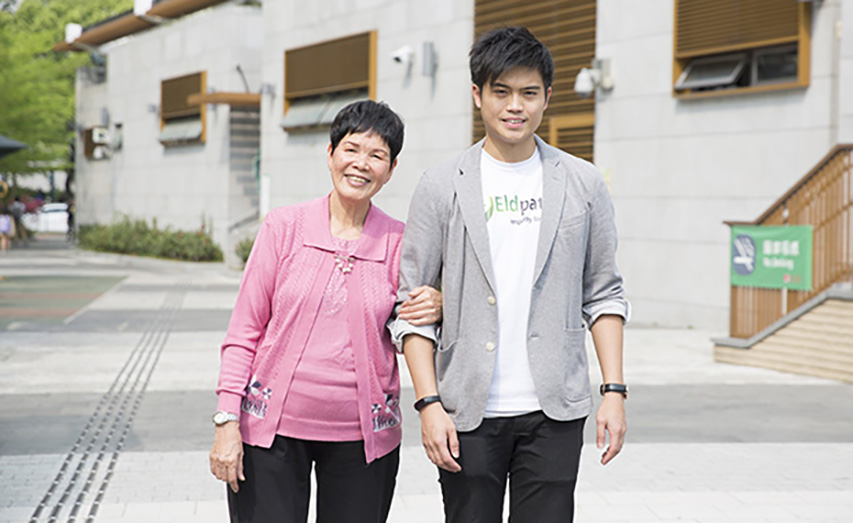
Jing calls Herman Boss and describes his respect for the elderly. He is well loved by his staff.
“The simulation suit makes you old for a moment, but this is my life,” Jing reflects. Physical infirmity comes to us all, but it’s what we make of it that counts. Jing is turning her challenges into life lessons worth sharing. Her experiences haven’t changed, but she’s harnessing them for something extraordinary.
About Eldpathy: Trains and recruits elderly coaches to host old age experience workshops at schools and organisations to promote communication between generations and foster respect for the elderly. Learn more about Eldpathy.
